![]()
Dansk – Español – Français – Italiano – Nederlandse – Polski – Russkij – Serpske – Suomalainen – Svenska – Türkçe
![]()
A selection of translated publications, in twelve languages – print, music and websites.
The articles originating from the early seventies represent pioneering contributions to a gender perspective in art history and archaeology – and at the same time the international flow of ideas among women, vivid and interdisciplinary.
The websites originate from 1998 – current
![]()
Work in Progress: Please contact me for publications/translations not (yet) available on this site.
![]()
Svenska / Swedish
Yrkesförbud för muserna – Varför är så många allegorier kvinnliga?
in: “Kvinnovetenskapling Tidskrift”, Lund/Schweden, Nr. 4/1981, S.68-87
Read English summary
Read full text: to come
![]()
Nederlandse/Dutch
Oedipoes en de Sfinx
in: Sonderheft von “De Heilstaat”, Zeitschrift des Kunsthistorischen Instituts der Universität Amsterdam, Dez. 1979
in: Meijer, Maaike; van Kasbergen, Mieke; van Mourik, Ineke; Kraakman, Dorelies (Eds.) (1979): Lesbisch Prachtboek, Amsterdam, p. 122-163, with 24 illustrations.
Read full text as PDF
English translation in: “Feminist Studies”, University of Maryland/USA. Winter 1980. Special Edition on the Cultural History of Women; see also: > english
(At the time beeing, only the dutch version is available on this website)
![]()
Nederlandse/Dutch
vrouwenbeweging in de karikatuur van daumier
in: “Kunstwerk”, Kunsthistorisch Instituut der Universiteit Nijmegen/Niederlande, Nr. 15/maart 1979, p.18-22. Translation/summary: Betty van Kessel
“In 1844 begint Daumier zijn litho`s tegen de vrouwenbeweging te gebruiken. De >hoge kunsten< in ideaal beeld en allegorie als het >moie geslacht<, maar de karikatuur had reeds lang voor Daumier het >lelijke geslacht< ontdekt. Het mannelijke geslacht heeft bepaalde kwaliteiten voor zichzelf gereserveerd ter legitimering van zijn macht; de revolterende vrouw, die een omwaardering van bepaalde kwaliteiten wil, gaat tegen de definitie van de vrouw in d.w.z. zij wil man worden en dat betekent lelijk worden – als vrouw…”
Full text as PDF: rentmeister_nijmegen_karikatuur
also as PDF: inhoud, redaktioneel, inleiding of “kunstwerk” maart 1979 nijmegen_kunstwerk_redaktioneel
see also German version on this website, menu > Emanzen – Das Häßliche Geschlecht
![]()
Nederlandse/Dutch
berufsverbote voor de muzen
short version in: “Kunstwerk”, Kunsthistorisch Instituut der Universiteit Nijmegen/Niederlande, Nr. 15/maart 1979, p.28-30
“Sinds de oudheid worden in de beeldende kunsten abstrakte, filosofiese begrippen, eeuwige waarheden en menselijke eigenschappen als levende en handelnde wezens voorgesteld. Cillie Rentmeister vraagt sich nu af waarom deze begrippen vooral door vrouwen gepersonifiëerd worden, terwijl vrouwen in de realiteit altijd een ondergeschikte positie ingenomen hebben…”
(At present, only an English Summary (> english, and see above under “swedish”) and a German version are available on this website)

Feminist Art and Art History – Events Abroad
The Netherlands
Feministische Kunst Internationaal, Amsterdam 1978

from left to right: Rosenbach, Rentmeister, Halbertsma, Cahen, Lippard, Damon
As part of the exhibition “Feministische Kunst Internationaal” 1978 (Curators a.o. Wies Smals, Liesbeth Brandt Corstius, Din Pieters, Marlite Halbertsma, Rosa Lindenburg) de Appel arts centre held a panel discussion in the Stedelijk Museum, Amsterdam on the 10th of December 1978. The panel consisted of VALIE EXPORT, Marlite Halbertsma, Lucy Lippard, Cillie Rentmeister and Ulrike Rosenbach, with Judith Cahen in the chair.
More Photos: Panel Participants Stedelijk Museum
Website of de Appel arts centre
Read more about the Event: FemArt – Kunst Door Vrouwen
Links to some of the participants:
Prof. Dr. Marlite Halbertsma and article “Op Bezoek bij Marlite Halbertsma” by Kirsten Vos (2005), as PDF: halbertsma 2005
Valie Export
Lucy Lippard
Ulrike Rosenbach
![]()
Dansk/Danish
Cirklens Kvadratur. Hvordan mændene tiltog sig magten over de byggede former
in: Blød By, 24, maj 1983, “Kvindearkitektur”, p. 36-41, illustrated
Full text as PDF:
rentmeister_kvadratur_part1
rentmeister_kvadratur_part2
BloedBy1983_contents_foreword “Hvad er Kvindearkitektur?”
![]()
![]()
italiano/ italian
Una risposta a “La Quadratura del Cerchio”
di Paola Coppola Pignatelli
in: Paola Coppola Pinatelli: Spazio e Immaginario. Maschile e Femminile in Architettura, Roma 1982, p.203-206, cap. settimo: Le reazioni all´ipotesi e l`opinione degli altri.
![]()
Finnish
Muusat Virkakieltoon – Miksi niin monet allegoriat ovat naispuolisia?
in: akkaväki, 1-1985, p.3-15, Helsinki
![]()
russkij – türkçe – polski – serpski – deutsch – english – français – español
 www.gewaltschutz.info
www.gewaltschutz.info
Domestic Violence: How those affected can protect themselves
According to one British study, an average of seven years go by between the first incidence of abuse and the point at which women seek outside help.
How can the protection laws help?
When will a police report help?
When is a separation/divorce necessary?
How to prepare for this?
Where should one flee?
What do the authorities require?
Precise and practical tips for those affected – but also for:
women’s representatives – women working in offices of the public authorities – workers’ council staff – those who provide counselling in cases of domestic violence.
Author and Producer: Perincioli, Cristina; Editor: Rentmeister, Cecilia (Cillie)
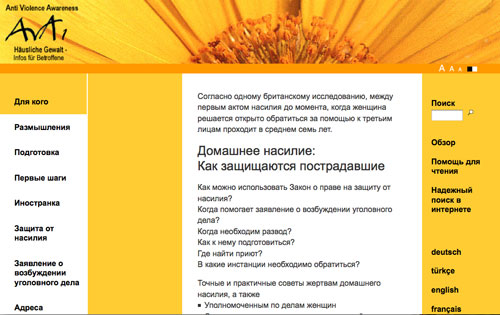
Links to Translated Sites:
> russkij![]()
> türkçe ![]()
> polski Przemoc w domu: Jak mo?na si? przed ni? ochroni?
> serpski Nasilje u porodici: Kako se pogodjene štite
> français Violence domestique: Comment se protéger
> español Violencia doméstica: cómo puede protegerse a la víctima
> english Domestic violence: How those affected can protect themselves
![]()
Finnish
The Sounds of the Women’s Movement – Women’s Rock Bands in Germany (1974 – 1985). The Finland Lectures.
The Finnish Press reported in 1985 from my lecture tour “The Finland Lectures” with Musik- Live-Acts: “Does Cillie bring the feministist Rockmusic to Finnland?” Lectures at Helsinki, Sibelius-Akatemia, March 5, 1985 and at Jyväskylä University, musiikin laitos / Music Institute, March 14, 1985.
Read the lecture in English (with illustrations): > english
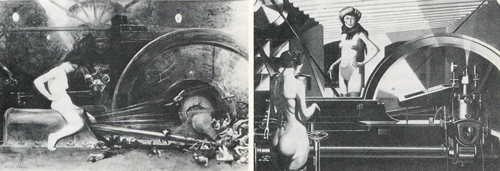

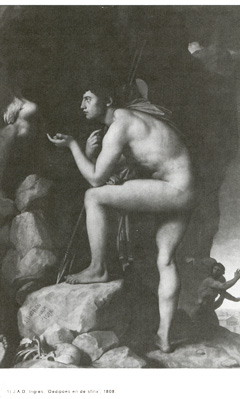
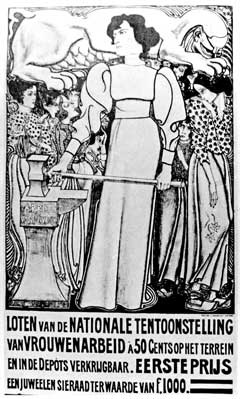
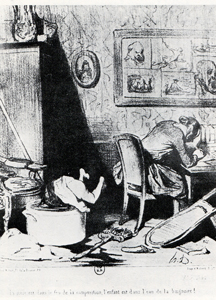
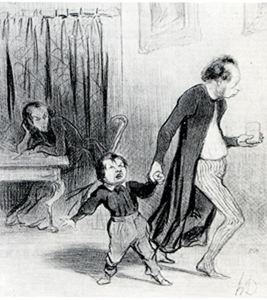


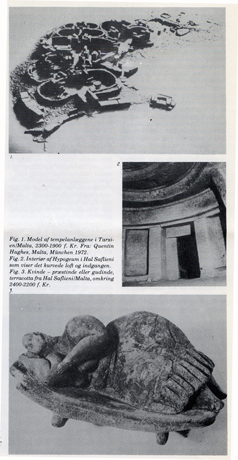
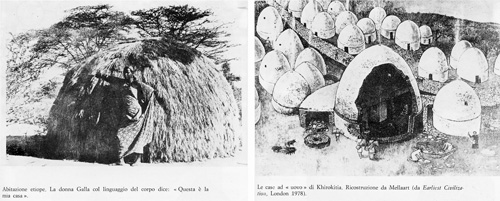
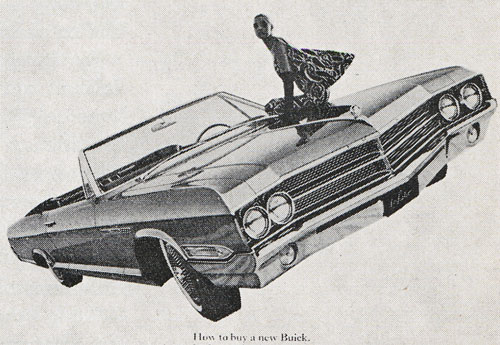
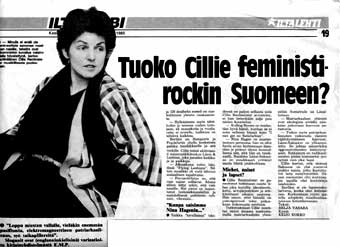
Ihr Kommentar: